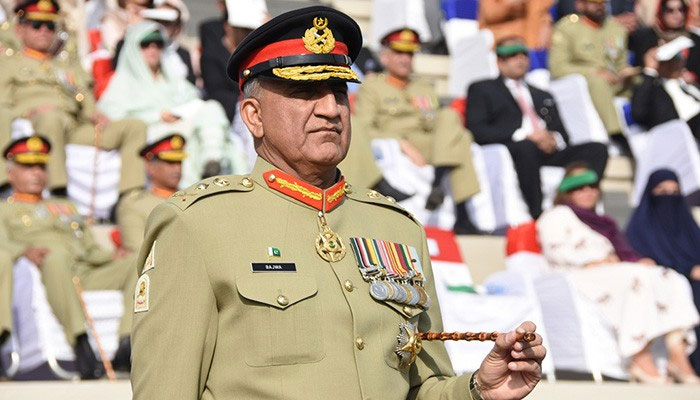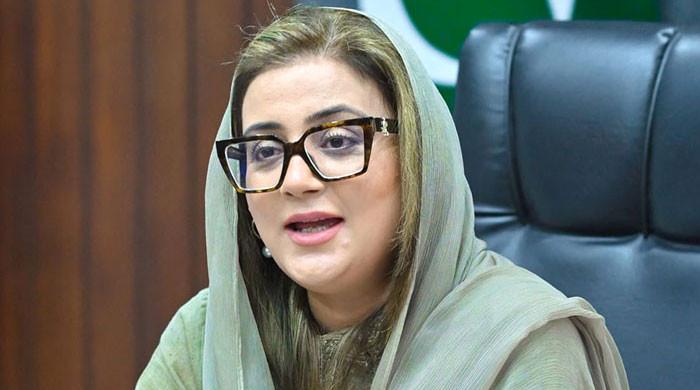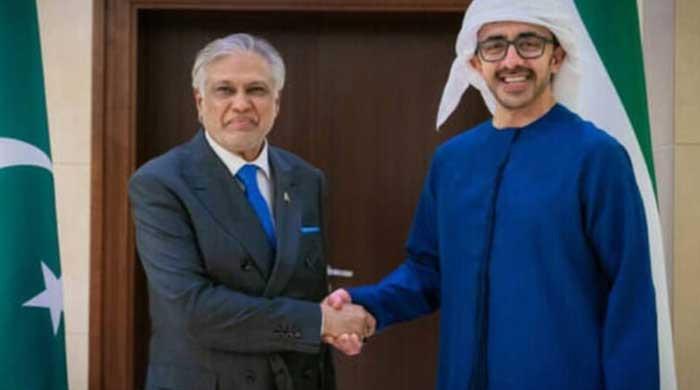Think tank says COAS leading defence diplomacy with more action, fewer words
Gen Bajwa frank in telling US Haqqani Network is a legitimate player in Afghanistan whether someone likes it, soothing Iran fears, staying out of Middle East conflicts, its says
July 18, 2017

LONDON: A reputed British security think tank has said that Pakistan’s army is determined to dispel misconceptions and address allegations made by both adversaries and allies with a renewed defence diplomatic effort in the Gulf and Afghanistan to bring stability.
The Royal United Services Institute (RUSI) published a report on its website on Monday and appreciated many steps taken by Pakistan’s current Chief of Army Staff (COAS) General Qamar Bajwa, whose office has historically been seen as the one that sets the country’s strategic agenda.
The RUSI’s Pakistan visiting fellow, Kamal Alam, said in an analysis published by RUSI that General Bajwa has “shunned grand public appearances, focusing instead on promoting defence diplomacy”. It noted that some of his predecessors, such as General Pervez Musharraf or General Ashfaq Parvez Kayani were happy to be seen in every international capital giving the impression that the army worried more about its international public image than its core objectives.
The RUSI analysis says: “The past six months have seen a change first begun with General Raheel Sharif, Pakistan’s army chief until November last year. Some of the key charges against the country were that Pakistan’s actions did not match its words. Islamabad, critics – including the US – claimed was not ‘coming clean’ about its policies in Afghanistan, that its relationship with the Saudis lacked transparency and that it was pursuing a hostile stance towards Iran.”
The RUSI analysis noted that Bajwa has sought to dispel these claims and since taking over, he has set his eyes firmly on strengthening Pakistan’s relations with the Gulf Cooperation Council (GCC) and Iran, talking straight about Afghanistan to the Americans and not misleading India over false promises of conflict resolution.
It mentioned COAS’ foreign visits to Saudi Arabia, the United Arab Emirates, Qatar and forthcoming visit to Tehran, and noted that Bajwa has reached out to Iran publicly and looked to reassure Tehran that Pakistan will be a force for stability rather than a spoiler in its row with Riyadh.
Kamal Alam wrote for the RUSI: “The COAS has also put an official trip to Iran at the top of his agenda and has met publicly with Iranian Foreign Minister Javad Zarif and Tehran’s ambassador to Islamabad. In contrast to Pakistan’s past military leaders, Bajwa is seeking to ensure that Iran does not feel isolated.”
The analysis said Pakistan Army’s defence diplomacy, over the past six months, in the Middle East has engaged most countries but without taking sides. It said Pakistan maintained strong ties with Saudi Arabia but stayed away from current row of Arab states with Qatar.
“Bajwa also assured the Emiratis of continued support, and in Qatar, he spoke of a new impetus in Doha–Islamabad defence ties. Qatar has also hinted at possible Pakistani army involvement in securing the 2022 football World Cup. Bajwa also stressed that the Qatar–Pakistan relationship was one that could bring regional stability.”
It said that Bajwa’s argument seems to be that Pakistan has secured its own territory and it is not the Pakistan Army’s job to secure Afghanistan as this is up to NATO and the Afghan National Army, and “one conclusion is clear: Pakistan’s military leadership is no longer either apologetic or pretending to play along with any foreign narrative on Afghanistan”.
The article noted that it was straight-forward and honest on part of Pakistan’s military while making it clear to NATO that the anti-US and anti-regime Haqqani Network is a legitimate player in Afghanistan whether Kabul likes it or not.
“In the past, Islamabad just denied contact with the Haqqanis.”
It said that Pakistan’s frank assertion about its Afghanistan approach has particularly impressed US Senator John McCain, who has spoken in support of Pakistan despite the common anti-Pakistani drumbeat in Washington, and British Chief of the General Staff, General Sir Nicholas Carter, also said Pakistan was finally delivering on its anti-terror promises.
It concluded: “All told, Pakistan’s army is now moving away from its previous stance of purely working in support of Saudi Arabia in the Middle East. And in Afghanistan, Bajwa has brought more clarity. The army wants action rather than words to dictate perceptions, irrespective of whether these are positive or negative.”











